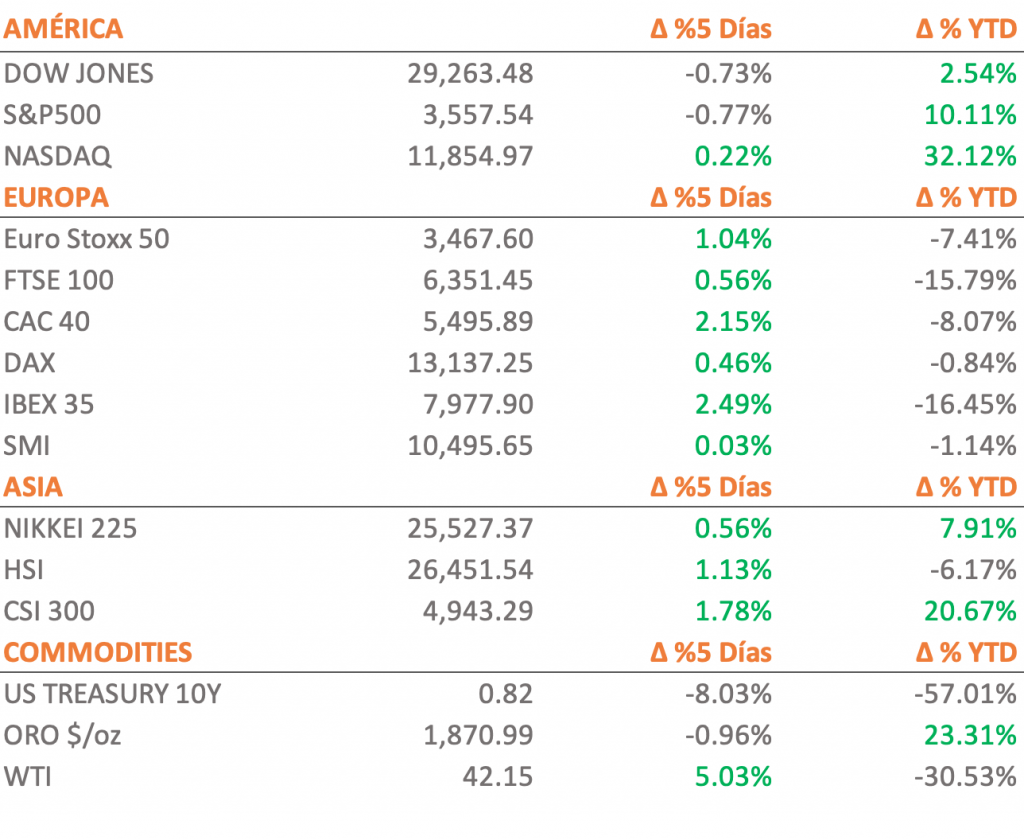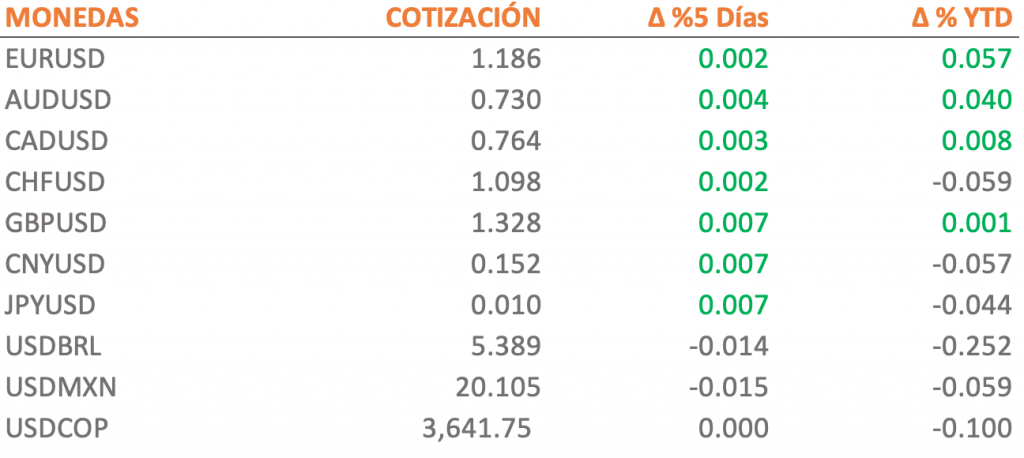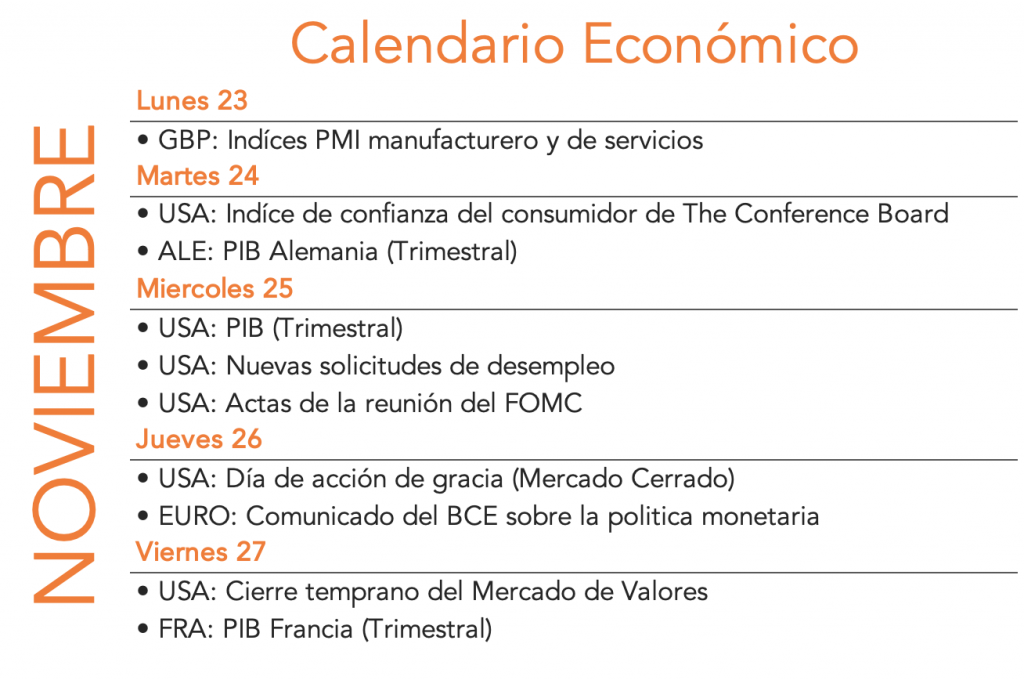Black Friday | Weekly Excerpt November 23rd
Weekly summary from November 16 to 20
- The U.S. equity market closed the week in negative territory. Economic data was not so positive and the increase in Covid-19 cases creates uncertainty.
- In Europe, the main indexes closed the week in positive territory. The EuroStoxx and the Ibex35 are approaching the best month in their history.


Black friday
- On Friday, November 27th, the famous "Black Friday," the event that marks the start of the holiday shopping season. Considering the economic damage caused by the pandemic, sales performance for this year is expected to be known. According to Oxford Economics will only increase by 0.6% with respect to 2019.
- It is a short week in the U.S. stock market due to the Thanksgiving holiday. On Thursday the market will be closed and on Friday it closes two hours earlier (14:00 GMT-5), less liquidity is expected in the derivatives market.
- Investors will be watching for the release of the minutes of the Fed's Open Market Committee meeting on Wednesday.
To be taken into account
- The December 10, 2009 FDA authorities will meet to approve the use of the COVID-19 vaccine developed by Pfizer Inc. and BioNTech. According to Dr. Moncef Slaoui, who is part of this operation, the first Americans are expected to start receiving the vaccine as of December 11.
- However, in europe investors will be attentive and optimistic that an agreement was finally reached commercial post Brexit. Differences in the agreement would be minimal at present and could be finalized in the future.
- The leaders of the G20 (world's leading economies) pledged to fight fair and spare no effort to make vaccines available to all people globally with a special focus on the most vulnerable.
- In economic terms, a plan was approved for extend the payment freeze of debt servicing for low-income countries until the middle of the year 2021.
- AstraZeneca has reported that the results of its vaccine developed with the University of Oxford has a average efficiency of the 70%. The company expects to be able to produce 3 billion doses by 2021.





